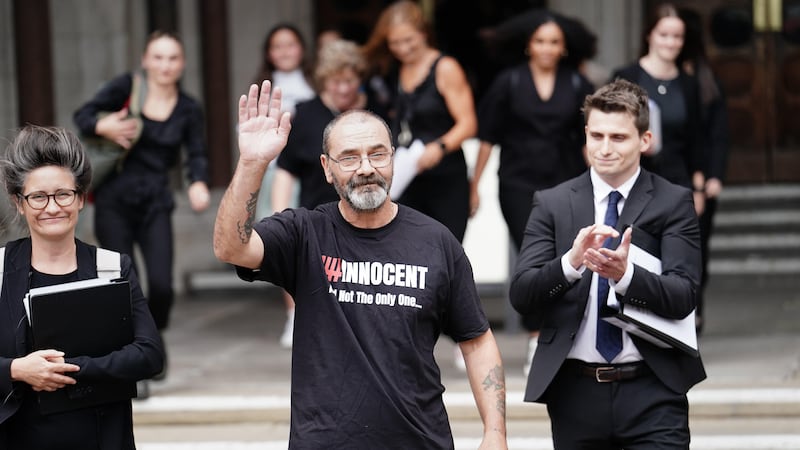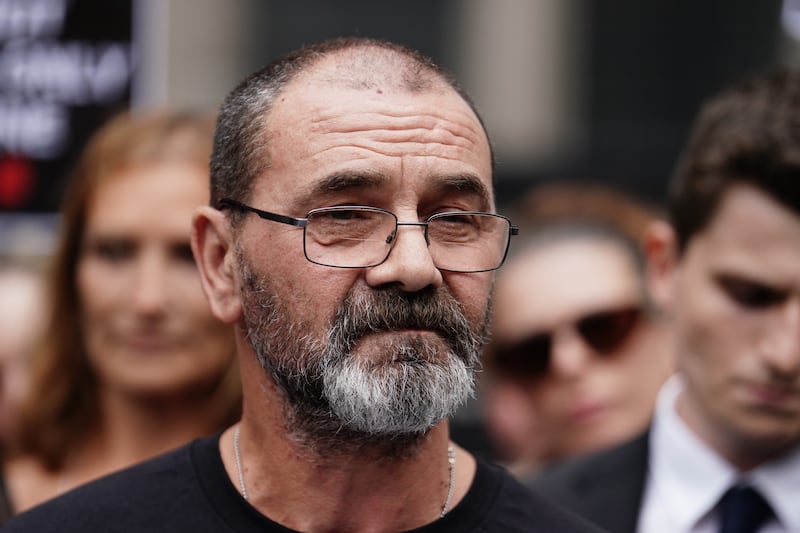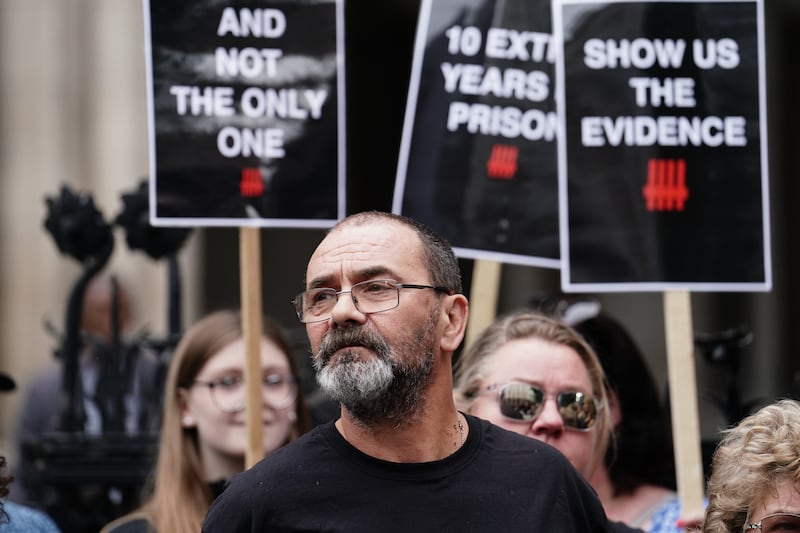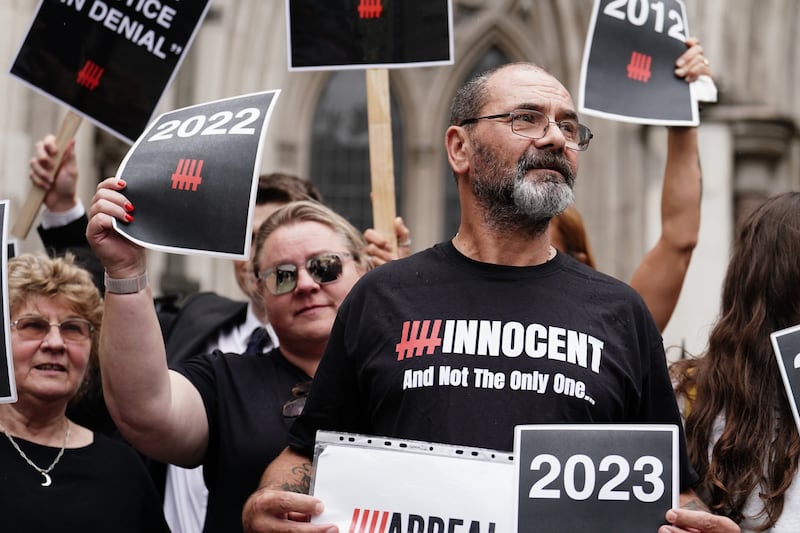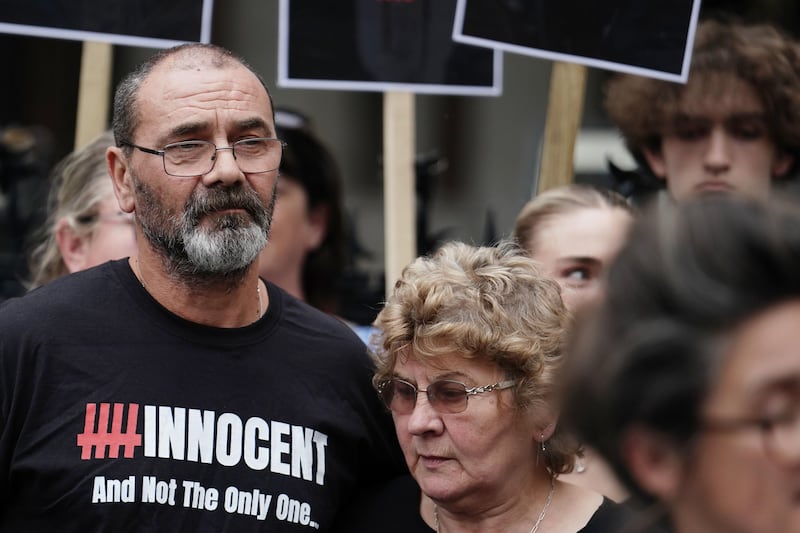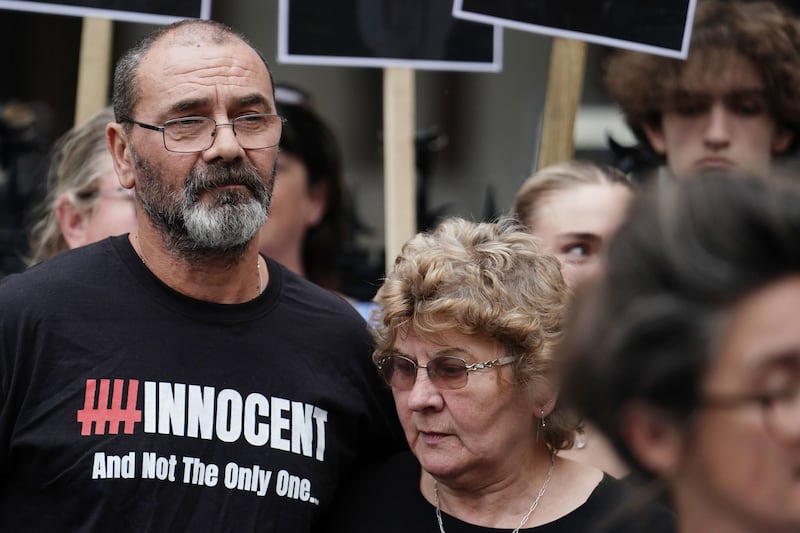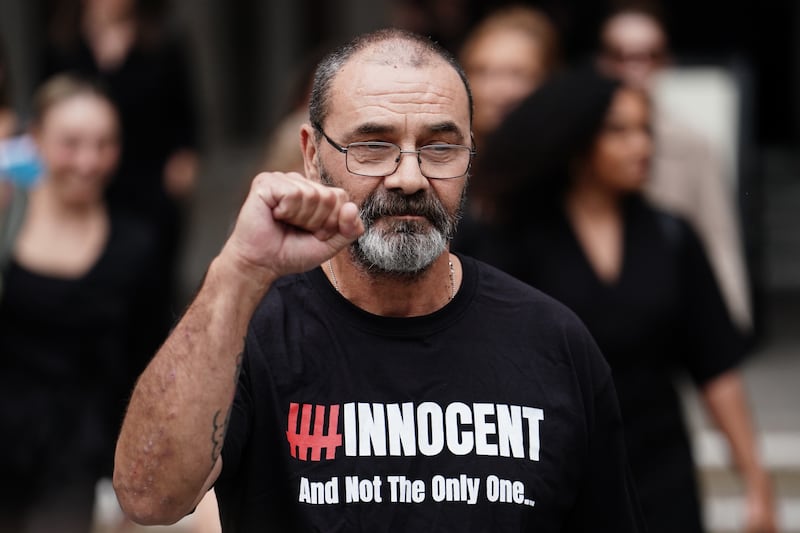Two former Government law officers have called for a public inquiry into the case of a man who spent 17 years in prison for a rape that he did not commit.
Andrew Malkinson had his conviction for the 2003 attack in Greater Manchester quashed last month after DNA potentially linking another man to the crime was identified.
He had twice applied for his case to be referred for appeal by the Criminal Cases Review Commission (CCRC) but was turned down, eventually being released from prison in December 2020.
After his release, advances in scientific techniques allowed his legal team to provide new DNA analysis that cast doubt on his conviction to the CCRC, which then commissioned its own testing.
Lord Edward Garnier KC, who was solicitor general from May 2010 to September 2012, expressed “jaw-dropping shock” over the failures in the case.
He told the BBC Radio 4 Today programme: “It seems to me that what we need now is complete and utter disclosure, public disclosure, of every document that relates to this case, save those which if disclosed would impede the prosecution of a new suspect, and there should be a public inquiry which should reach conclusions about what went wrong, who knew what and when, within a sixth-month period.”
His call was backed by ex-solicitor general and former justice secretary Sir Robert Buckland, who told BBC Radio 4’s World At One: “All agencies involved in this have some explaining to do, so we understand precisely what happened.
“Until we have that proper inquiry, I don’t think we’ll get to the bottom of what on earth went wrong in this case.”
Case files obtained by 57-year-old Mr Malkinson as he battled to be freed show that police and prosecutors knew forensic testing in 2007 had identified a searchable male DNA profile on the rape victim’s vest top that did not match his own.
No match was found on the police database at the time and no further action was taken.
There is no record that they told the CCRC, the body responsible for investigating possible miscarriages of justice, although the CPS said Mr Malkinson’s lawyers were told.
Notes of a meeting between the Forensic Science Service, the CPS and Greater Manchester Police (GMP) in December 2009 included a note that the DNA had been found in an area of the victim’s vest top that was “crime specific”.
Mr Malkinson applied to the CCRC for a review of his case that year, but when the review concluded in 2012 the commission refused to order further forensic testing or refer the case for appeal.
CCRC documents relating to the case between 2009 and 2012 suggest there were concerns about costs.
Mr Malkinson’s solicitor Emily Bolton, director of the Appeal charity, called for an overhaul of the CCRC “to prevent it failing other innocent prisoners”.
James Burley, investigator at Appeal, highlighted the failure of the CCRC to look at police files, and called its handling of the case “deeply flawed and a complete mess”.

He said: “The CCRC’s internal comments show that in deciding not to commission any DNA testing, cost was at the forefront of their considerations. That decision may have saved the CCRC some money, but it came at a brutal cost for both Andy and the victim.
“The CCRC has been giving the false impression that a DNA breakthrough could not have been achieved by them sooner.
“These records show that is nonsense, and I don’t think they would have commissioned any DNA enquiries on this case at all if Appeal hadn’t obtained new DNA testing results ourselves first.”
Mr Malkinson said: “If the CCRC had investigated properly, it would have spared me years in prison for a crime I did not commit.
“I feel an apology is the least I am owed, but it seems like the very body set up to address the system’s fallibility is labouring under the delusion that it is itself infallible. How many more people has it failed?”
The CCRC, Greater Manchester Police and the CPS have been approached for comment by the PA news agency.
A CPS spokesperson told The Guardian: “It is clear Mr Malkinson was wrongly convicted of this crime and we share the deep regret that this happened.
“Evidence of a new DNA profile found on the victim’s clothing in 2007 was not ignored. It was disclosed to the defence team representing Mr Malkinson for their consideration.
“In addition, searches of the DNA databases were conducted to identify any other possible suspects. At that time there were no matches and therefore no further investigation could be carried out.”
The CCRC told the newspaper: “As we have said before, it is plainly wrong that a man spent 17 years in prison for a crime he did not commit.”
